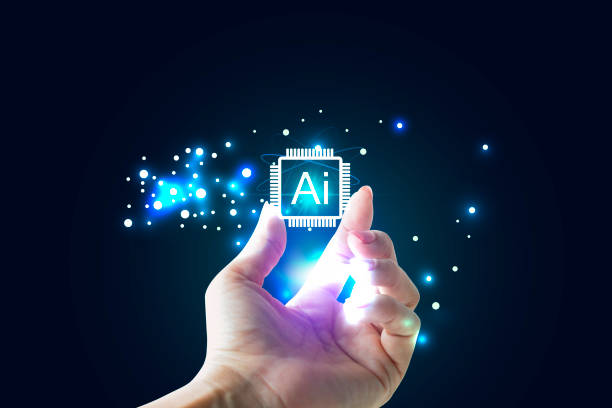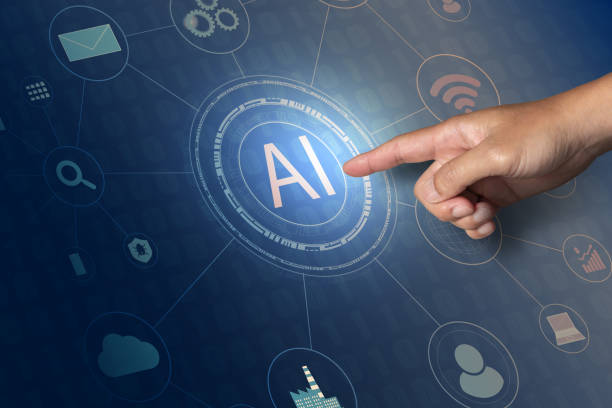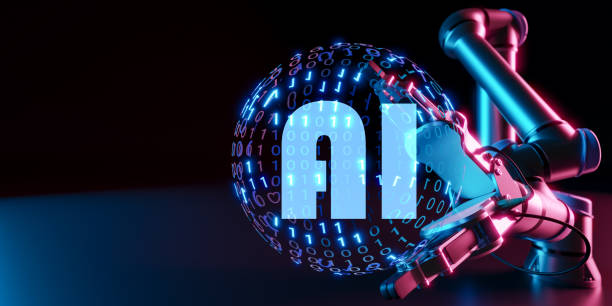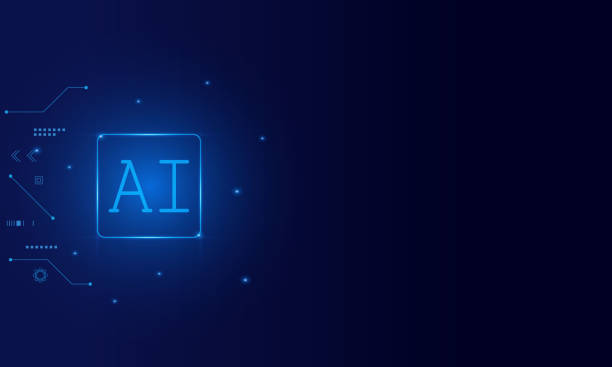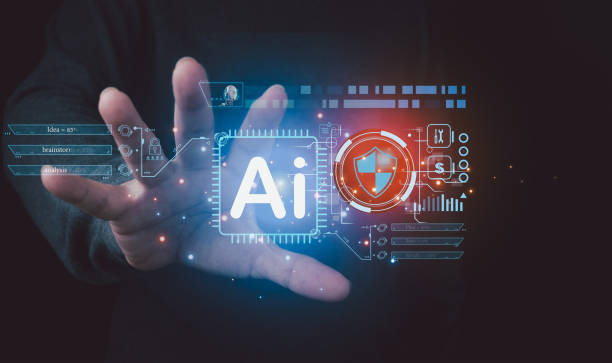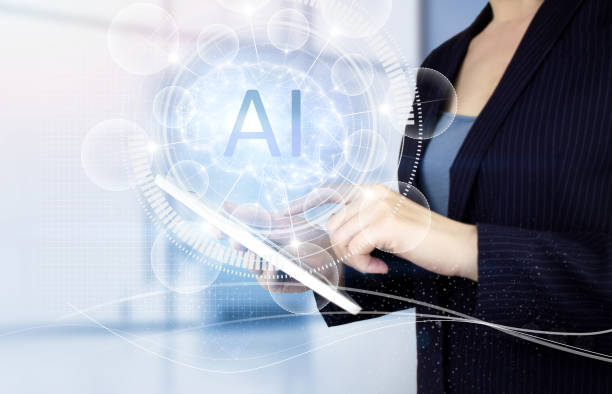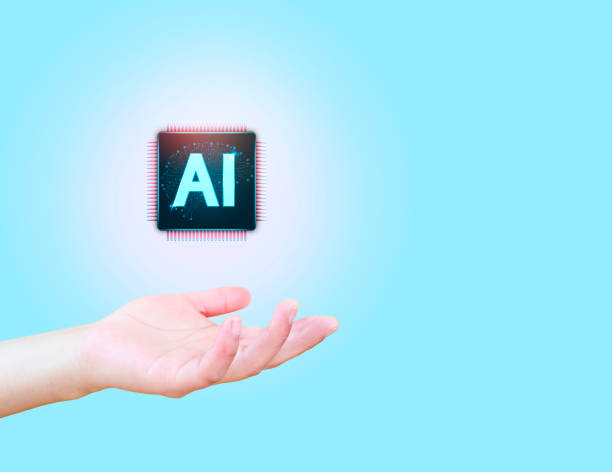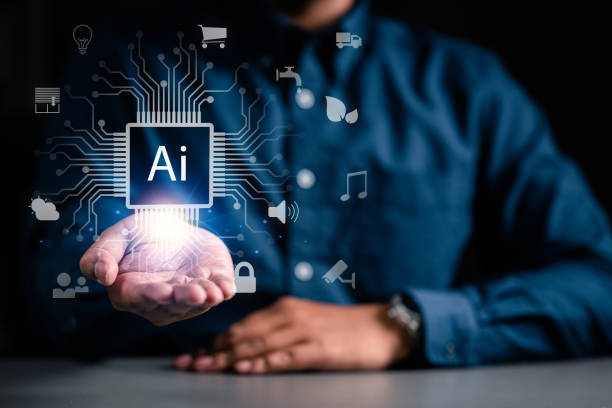The Role of Artificial Intelligence in Transforming the Job Market
Artificial intelligence (AI) is rapidly becoming a driving force in the job market.
This technology not only automates processes but also creates new job opportunities.
Understanding this role is crucial for preparing for the future of AI jobs.
Many industries, such as #healthcare, #finance, and #transportation, are witnessing fundamental changes resulting from the adoption of AI-based systems.
These transformations require a re-evaluation of the skills and expertise needed in the job market.
As the use of AI expands, traditional jobs will gradually give way to new jobs with more advanced skills.
Therefore, personal education and development are essential to keep pace with these changes.
The future of AI jobs requires individuals who have the ability to work with intelligent systems, analyze data, and develop algorithms.
These changes bring both challenges and opportunities.
Challenges include the need for workforce retraining and concerns about replacing human labor with machines.
Opportunities include increased productivity, the creation of new jobs, and improved quality of life through smart technologies.
As a result, a careful examination of the role of artificial intelligence in transforming the job market is of great importance to policymakers, employers, and job seekers.
Are you tired of your company’s website failing to meet your expectations? With Rasaweb, design a professional website that showcases the true face of your business.
✅ Increase the attraction of new customers and sales leads
✅ Increase the credibility and trust of your brand with your audience
⚡ Get a free website design consultation!
Jobs at Risk and New Jobs Resulting from Artificial Intelligence
The use of artificial intelligence is transforming the structure of jobs.
Some jobs are at risk due to automation and algorithms, while new jobs are emerging that require specialized skills in the field of artificial intelligence.
Jobs that require repetitive and routine tasks will be the most affected.
For example, telephone operators, data entry clerks, and some manufacturing jobs are at risk of being replaced by intelligent systems.
On the other hand, jobs such as data scientists, AI engineers, and machine learning specialists are growing rapidly, and demand for them is increasing.
To better understand the future of AI jobs, it should be noted that machines will not replace humans, but rather humans will become more efficient using machines.
This requires training and developing new skills in areas such as data analysis, programming, and management of artificial intelligence projects.
Therefore, investing in education and developing AI-related skills can help individuals succeed in the future of AI jobs.
In addition, jobs that require critical thinking, creativity, and emotional intelligence are less at risk and will continue to play an important role in the job market.
Skills Needed to Succeed in the Age of Artificial Intelligence
To succeed in the future of AI jobs, having both technical and soft skills is essential.
Technical skills include knowledge of programming, data analysis, machine learning, and artificial intelligence.
In addition, soft skills such as critical thinking, problem-solving, creativity, communication, and collaboration are also of great importance.
The ability to solve complex problems and provide innovative solutions can help individuals succeed in dynamic and changing work environments.
Also, strong communication skills help individuals communicate effectively with colleagues and customers and convey their ideas well.
In the age of artificial intelligence, continuous education and lifelong learning are of particular importance.
Technologies are changing rapidly, and people must constantly update their skills.
Participating in online training courses, workshops, and conferences related to artificial intelligence can help individuals improve their knowledge and skills.
Also, gaining practical experience through hands-on projects and internships can help individuals apply their skills in a real-world environment.
The future of AI jobs requires people who not only have technical knowledge but also have the ability to think creatively and solve complex problems.
These skills help individuals succeed in dynamic and changing work environments and contribute to innovation and process improvement.
Analysis of Leading Industries in the Application of Artificial Intelligence
Some industries are leading the way in the application of artificial intelligence and have had a significant impact on the job market.
The healthcare industry is one of these industries, using artificial intelligence to diagnose diseases, develop drugs, and improve patient care.
The financial industry also uses artificial intelligence to analyze data, detect fraud, and provide personalized financial services.
The transportation industry also uses artificial intelligence to improve safety, reduce costs, and increase efficiency.
In addition, the retail, manufacturing, and energy industries are also widely using artificial intelligence.
Click here to preview your posts with PRO themes ››
Understanding how artificial intelligence is being used in these industries can help individuals identify existing job opportunities and acquire the necessary skills.
For example, in the healthcare industry, the need for specialists in analyzing medical data and developing disease detection algorithms is increasing.
In the financial industry, the need for cybersecurity and risk analysis specialists has increased.
In the transportation industry, the need for self-driving car engineers and intelligent traffic management specialists has increased.
As a result, analyzing leading industries in the application of artificial intelligence can help individuals better plan their future in AI jobs.
The future of AI jobs has created transformations in these industries and provided new opportunities for specialists.
Does your current corporate website present a worthy image of your brand and attract new customers?
If not, turn this challenge into an opportunity with Rasaweb’s professional corporate website design services.
✅ Significantly improves the credibility and image of your brand.
✅ Paves the way for attracting new leads and customers.
⚡ Contact Rasaweb now for a free and expert consultation!
The Impact of Artificial Intelligence on Management and Leadership Jobs
Artificial intelligence not only affects technical and specialized jobs, but also changes the role of managers and leaders.
Managers and leaders must have the ability to use data and artificial intelligence tools to make better decisions.
They must be able to guide their teams towards organizational goals and improve work processes using smart technologies.
In addition, managers and leaders must have the ability to manage change and adapt to dynamic and changing work environments.
In the future of AI jobs, managers and leaders must be able to communicate effectively with artificial intelligence specialists and convey their needs to them.
They must have a complete understanding of the capabilities and limitations of artificial intelligence and be able to use this technology effectively to solve organizational problems.
Also, managers and leaders must have the ability to create an organizational culture that encourages innovation and continuous learning.
This culture helps organizations adapt to technological changes quickly and take advantage of new opportunities.
The future of AI jobs requires leaders who not only have technical knowledge but also have the ability to lead people and motivate them.
These leaders can guide organizations on the path to success and help improve performance and increase productivity.
Ethical and Social Challenges of Artificial Intelligence in the Workplace
The application of artificial intelligence in the workplace brings many ethical and social challenges.
One of these challenges is concerns about privacy and data security.
Organizations must ensure that people’s personal data is kept secure and confidential and is not misused.
Another challenge is concerns about discrimination and inequality.
Artificial intelligence algorithms may unintentionally be discriminatory and lead to unfair decisions.
Also, concerns about job losses and increased economic inequality are among the social challenges of artificial intelligence.
To address these challenges, organizations must develop and implement ethical policies and procedures.
These policies should include principles of privacy, data security, transparency, and fairness.
Also, organizations must continuously review their artificial intelligence algorithms and ensure that they are not discriminatory.
In addition, organizations must invest in workforce education and skill development so that individuals can adapt to the changes resulting from artificial intelligence.
The future of AI jobs requires attention to ethical and social issues to prevent potential negative consequences and to fairly benefit from the advantages of this technology.
Training and Developing the Workforce for the Future of AI Jobs
Training and developing the workforce for the future of AI jobs is of utmost importance.
Organizations must design and implement comprehensive training programs that help individuals acquire the skills needed to work in smart work environments.
These programs should include technical training in the areas of programming, data analysis, machine learning, and artificial intelligence.
Also, the programs should include soft skills training in the areas of critical thinking, problem-solving, creativity, communication, and collaboration.
In addition, organizations should provide continuous learning and professional development opportunities for their employees so that they can keep their skills up to date.
Click here to preview your posts with PRO themes ››
Governments also have an important role in training and developing the workforce for the future of AI jobs.
They can prepare people for new jobs in the field of artificial intelligence by providing technical and vocational training.
Also, governments can encourage organizations to invest in workforce education and skill development by providing financial incentives.
In addition, governments can help develop and commercialize artificial intelligence technologies by creating innovation and technology centers.
The future of AI jobs requires investment in workforce education and development so that individuals can adapt to the changes resulting from artificial intelligence and take advantage of new opportunities.
Case Study of Successful Companies in Applying Artificial Intelligence
A case study of successful companies in applying artificial intelligence can provide valuable information about how to use this technology to improve performance and increase competitiveness.
Companies such as Google, Amazon, Microsoft, and Tesla are pioneers in the application of artificial intelligence and use this technology to improve their products and services.
For example, Google uses artificial intelligence to improve search results, translate languages, and develop self-driving cars.
Amazon uses artificial intelligence to improve supply chain management, provide personalized recommendations, and develop warehouse robots.
Microsoft uses artificial intelligence to improve the Windows operating system, develop productivity tools, and provide cloud services.
Tesla uses artificial intelligence to develop self-driving cars and improve safety systems.
Examining the strategies and approaches of these companies can help other organizations learn from their experiences and use artificial intelligence effectively in their business.
For example, organizations can find new ways to improve SEO and increase website traffic by studying how Google uses artificial intelligence to improve search results.
Also, organizations can find new ways to reduce costs and improve the efficiency of their supply chain by studying how Amazon uses artificial intelligence to manage its supply chain.
The future of AI jobs depends on how this technology is used in organizations, and a case study of successful companies can help organizations benefit from this technology effectively.
Are you worried about the low conversion rate of your online store and not getting the sales you want?
Rasaweb is your specialized solution for having a successful online store.
✅ Significant increase in conversion rates and sales
✅ Professional and user-friendly design to satisfy customers
⚡ Ready to transform your online sales? Get a free consultation!
Government Policymaking for Managing the Future of AI Jobs
Governments have an important role in managing the future of AI jobs.
They must develop and implement policies that help individuals and organizations adapt to the changes resulting from artificial intelligence and take advantage of new opportunities.
These policies should include support for education and skill development, support for innovation and technology, support for the creation of new jobs, and support for vulnerable individuals.
Governments can prepare people for new jobs in the field of artificial intelligence by providing technical and vocational training.
They can encourage organizations to invest in workforce education and skill development by providing financial incentives.
Also, governments can help develop and commercialize artificial intelligence technologies by creating innovation and technology centers.
In addition, governments can support people who lose their jobs due to automation by providing unemployment insurance and support programs.
As a result, government policymaking can help reduce the negative consequences of artificial intelligence and increase its benefits.
The future of AI jobs requires smart government policymaking to fairly benefit from the opportunities of this technology and prevent its negative consequences.
Predicting Trends and Opportunities in the Future of AI Jobs
Predicting trends and opportunities in the future of AI jobs can help individuals and organizations prepare for future changes and take advantage of new opportunities.
According to research and studies, it is expected that artificial intelligence will be increasingly used in various industries, leading to the creation of new jobs and changing the nature of existing jobs.
Jobs such as data scientists, AI engineers, machine learning specialists, and cybersecurity specialists are growing rapidly, and demand for them is increasing.
Also, it is expected that artificial intelligence will play an important role in areas such as healthcare, finance, transportation, manufacturing, and energy.
Click here to preview your posts with PRO themes ››
To prepare for the future of AI jobs, individuals must acquire the necessary skills and continuously update their knowledge.
Organizations must invest in workforce education and skill development and improve their work processes using smart technologies.
Governments must develop and implement policies that help individuals and organizations adapt to the changes resulting from artificial intelligence and take advantage of new opportunities.
As a result, through cooperation and joint efforts, we can fairly benefit from the advantages of artificial intelligence and prevent its negative consequences.
The future of AI jobs provides many opportunities for individuals and organizations, but requires careful preparation and planning.
Frequently Asked Questions
| Question | Answer |
|---|---|
| What impact will artificial intelligence have on the future job market? | Artificial intelligence automates repetitive tasks but will also create new and more complex jobs in areas such as the development, maintenance, and training of artificial intelligence systems. |
| Which jobs are most at risk of being replaced by artificial intelligence? | Jobs that involve repetitive, rule-based tasks with low demands for creativity or emotional intelligence, such as some manufacturing jobs, data entry, and simple customer service, are most at risk. |
| What skills are necessary to succeed in the future job market with the presence of artificial intelligence? | Skills such as critical thinking, complex problem-solving, creativity, emotional intelligence, data literacy, the ability to work with artificial intelligence, and lifelong learning are of great importance. |
| Will artificial intelligence cause widespread unemployment? | Some jobs will disappear, but history has shown that new technologies, instead of causing widespread unemployment, reshape the job market and create new jobs. The need for adaptation and retraining is important. |
| What new job opportunities are emerging with the advent of artificial intelligence? | Jobs such as machine learning engineer, data scientist, artificial intelligence ethicist, human-AI interaction designer, and digital transformation consultant are among the new opportunities. |
| What is the role of education in preparing for the future job market with artificial intelligence? | Education should focus on developing soft skills, computational thinking, digital literacy, and the ability to learn continuously so that individuals are prepared for future changes. |
| How can I prepare myself for the changes in the job market caused by artificial intelligence? | You can prepare yourself by learning new skills related to artificial intelligence and data, strengthening soft skills, developing critical thinking and creativity, and developing a habit of lifelong learning. |
| Will artificial intelligence ethics become an important career field? | Yes, given growing concerns about biases, privacy, and automated decision-making in artificial intelligence, the role of artificial intelligence ethics professionals will be crucial to ensuring its responsible development. |
| What is the importance of human-artificial intelligence collaboration in the future job market? | Human-artificial intelligence collaboration, rather than competition, shapes the future of the job market. Artificial intelligence can be a tool to increase productivity and allow humans to focus on more complex and creative tasks. |
| Which industries will be most affected by artificial intelligence? | Almost all industries will be affected, but areas such as healthcare, finance, transportation, manufacturing, education, and customer service are at the forefront of adoption and transformation by artificial intelligence. |
And other services of Rasa Web advertising agency in the field of advertising
Intelligent content strategy: A combination of creativity and technology to increase sales by using real data.
Intelligent brand identity: Transform the click-through rate with the help of intelligent data analysis.
Intelligent custom software: Transform online growth with the help of optimizing key pages.
Intelligent sales automation: An effective tool to increase the click-through rate with the help of using real data.
Intelligent marketing automation: An exclusive service for growing website traffic based on intelligent data analysis.
And more than hundreds of other services in the field of internet advertising, advertising consulting, and organizational solutions
Internet advertising | Advertising strategy | Advertorial
Resources
? Are you looking to grow and get your business seen in the digital world? Rasaweb Marketing Agency, relying on up-to-date knowledge and extensive experience in user-friendly website design and implementing effective online marketing strategies, is always ready to help you achieve great success.
📍 Tehran, Mirdamad Street, next to the Central Bank, South Kazerun Alley, Ramin Alley No. 6

